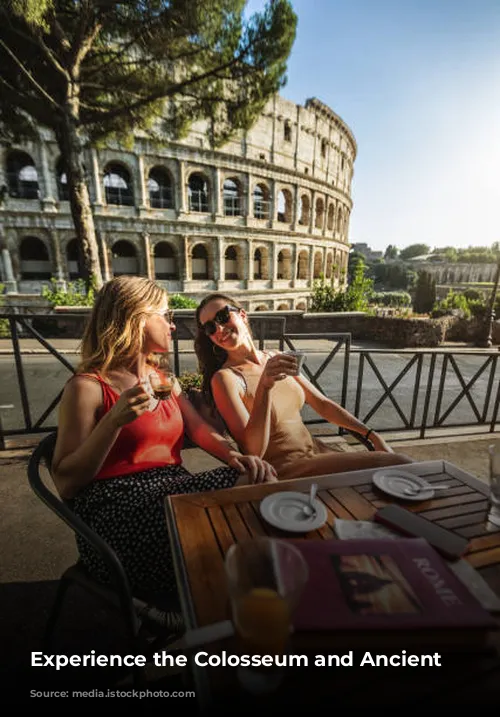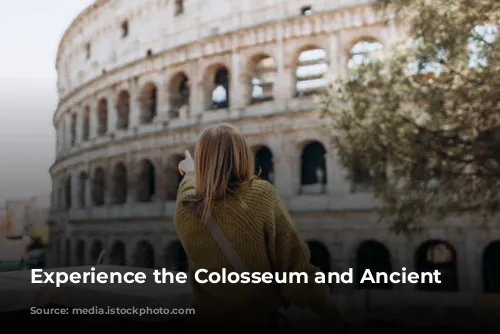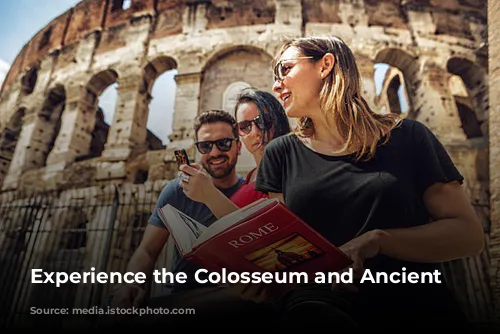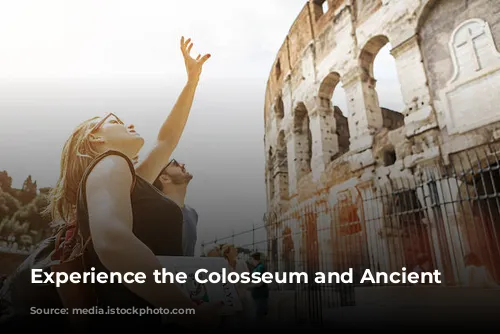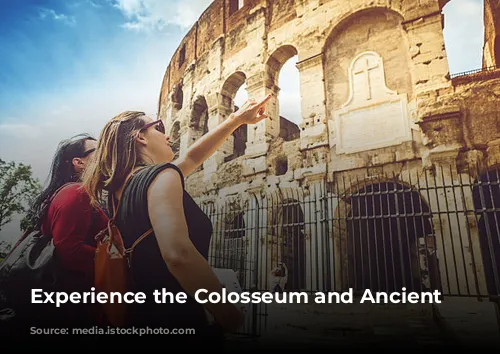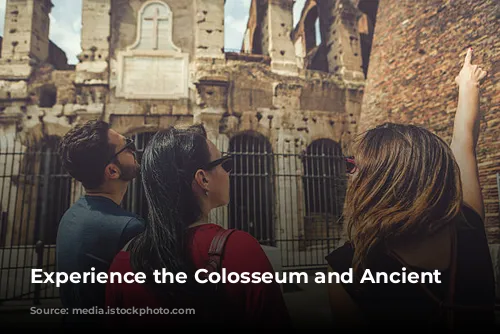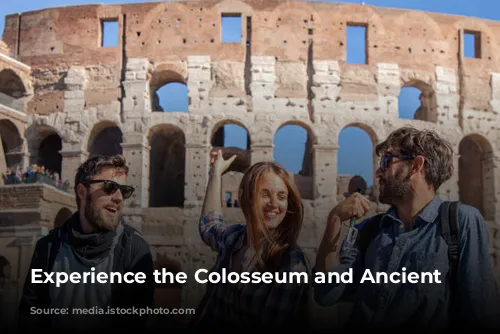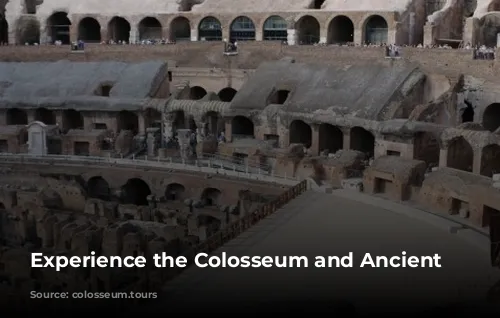Ready to step back in time? Rome beckons with its captivating history, iconic landmarks, and vibrant culture. Let’s embark on a journey to discover the wonders of this ancient city, starting with the legendary Colosseum.
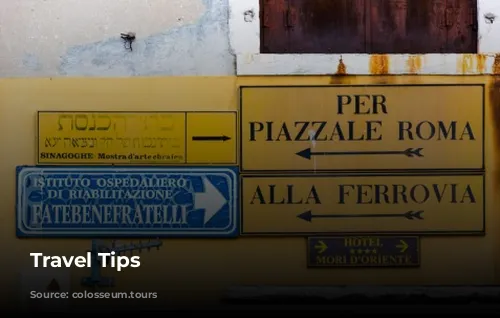
Unveiling the Colosseum’s Secrets
The Colosseum, a testament to Roman ingenuity, is a must-see for any visitor to Rome. This magnificent amphitheater, built around 70-80 AD by Emperor Vespasian, stands as a symbol of ancient Rome’s grandeur and power.
Imagine the roar of the crowd as gladiators battled, exotic animals roamed the arena, and mock naval battles unfolded. The Colosseum, with its capacity to hold up to 80,000 spectators, was a hub of entertainment and spectacle.
The Colosseum’s design is a marvel of ancient engineering. Its oval-shaped structure, soaring 48 meters high, boasts four levels adorned with intricate details. The lower tier features Doric columns, the middle Ionic, and the upper Corinthian, highlighting the Romans’ mastery of architecture.
Ramps, stairs, and tunnels facilitated smooth movement of people and animals, making the Colosseum an efficient and impressive venue.
At night, the Colosseum transforms into a majestic spectacle, bathed in soft light against the dark sky. Its beauty and serene atmosphere offer a glimpse into ancient Rome’s vibrant past.
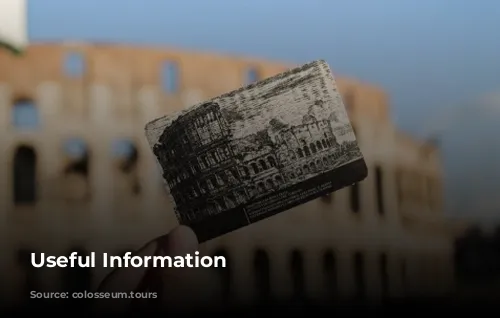
Practical Tips for Your Colosseum Adventure
Planning your visit is key to enjoying the Colosseum to the fullest. To avoid long queues and ensure entry, booking your tickets in advance is highly recommended.
Here are some handy tips to make your Colosseum experience smooth and memorable:
- What to avoid bringing: Large bags, backpacks, wheeled bags, glass containers, weapons, and aerosol sprays.
- Consider purchasing skip-the-line tickets for a more efficient visit.
- Wear comfortable shoes to explore the Colosseum and its surroundings.
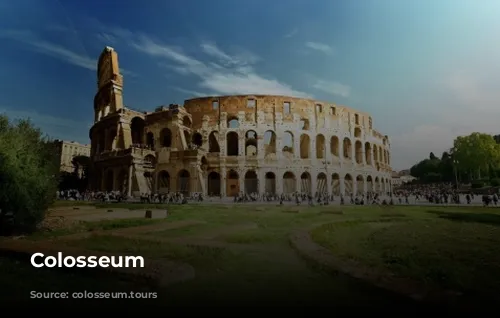
Delving into Ancient Rome
The Colosseum is not just a spectacle; it’s a gateway to understanding ancient Rome’s rich history. To truly immerse yourself in this captivating era, consider joining a guided tour.
A knowledgeable local guide will lead you through the Colosseum’s secrets, unlocking fascinating stories and providing valuable insights. You’ll learn about the Colosseum’s construction, its uses, and its significance in Roman society.
Beyond the Colosseum, your tour might take you to other remarkable sites:
- Palatine Hill: Explore the oldest part of Rome, where emperors once resided in opulent palaces. Enjoy breathtaking views and wander among the ruins.
- Roman Forum: Step back in time, walking along ancient roads and marveling at temples, offices, and the Senate building. This once-bustling hub of political activity offers a glimpse into Roman life.
Immerse yourself in the grandeur of the Colosseum and the rich history of Ancient Rome with a guided tour.
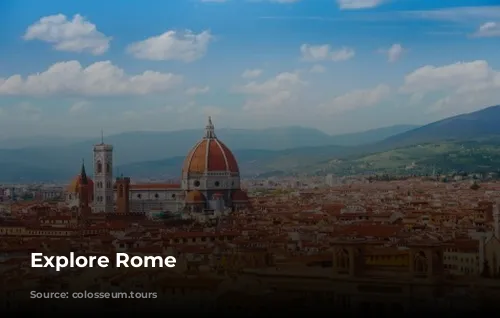
More Than Just History: Rome’s Vibrant Charm
Rome is not just about ancient ruins and historical sites. It’s a city teeming with life, bursting with art, culture, and culinary delights. Experience the authentic flavors of Rome through its street food.
Don’t be afraid to venture off the beaten path and explore the local haunts frequented by Romans.
For an unforgettable culinary experience, try:
- Trastevere: This bohemian neighborhood offers a lively atmosphere with charming cobblestone streets, bustling piazzas, and trattorias serving delectable traditional dishes.
- Monti: Explore the trendy boutiques, artisan shops, and quaint cafes hidden within the winding alleys of Monti.
As you savor the flavors of Rome, remember to:
- Be aware of the service charge: Many restaurants in Rome automatically include a service charge in the bill.
- Leave a tip: A 10% tip is customary if you’re particularly happy with the service.
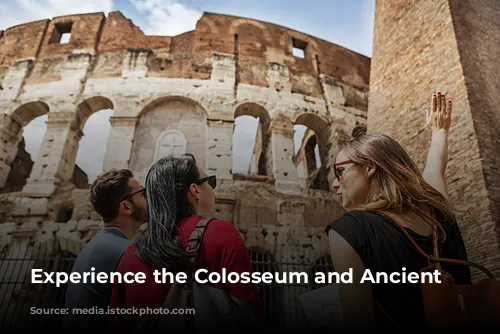
Vatican City: A Spiritual and Artistic Journey
No trip to Rome is complete without a visit to the Vatican City. This sovereign state, home to the Pope and the Roman Catholic Church, is a center of global reverence.
Here are some highlights of the Vatican City:
- Vatican Museums: Explore a vast collection of artistic treasures, including masterpieces by Michelangelo and Raphael.
- Sistine Chapel: Be mesmerized by the breathtaking frescoes, especially Michelangelo’s masterpiece on the ceiling.
- St. Peter’s Basilica: Marvel at its awe-inspiring architecture and religious significance.
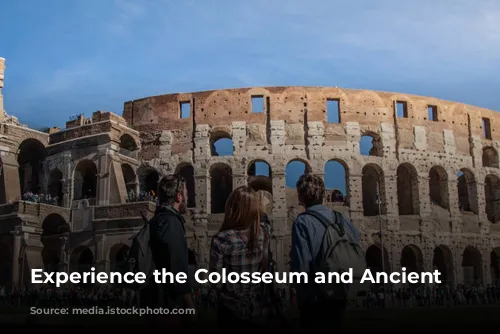
Planning Your Visit: Free Admission and Busy Days
Every first Sunday of the month, entry to state-owned museums, galleries, parks, and archaeological sites in Rome is free. This is a fantastic opportunity to explore these attractions without paying an entrance fee.
However, be aware that this is the busiest day of the month. To avoid the crowds, arrive early and plan your visit accordingly.
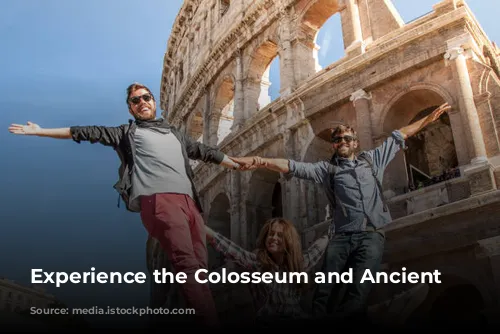
The Colosseum: A Symbol of Ancient Rome’s Legacy
The Colosseum stands as a testament to the power and grandeur of the Roman Empire. It is a symbol of ancient Rome, just as the Eiffel Tower is a symbol of Paris.
The Colosseum reminds us of the might, prestige, and spectacle of ancient Roman civilization. It continues to fascinate and inspire us today.
